| Author |
 Topic Topic  |
|
|
mittens
Platinum Member
    
 United Kingdom United Kingdom
2109 Posts |
 Posted - 30 May 2010 : 09:46:28 AM Posted - 30 May 2010 : 09:46:28 AM






|
When I was discussing the ways in which we feed our horses these days I came across this article when ordering from the website.What are your thoughts?
Link removed for violation of rule regarding commercial links
|
Avatar
My Contact Info
nrisby@btinternet.com |
|
Report to moderator
|
|
|
debs
Platinum Member
    
United Kingdom
3218 Posts |
 Posted - 30 May 2010 : 10:40:24 AM Posted - 30 May 2010 : 10:40:24 AM





|
| Very interesting,anyone here feed this way???The wormer looks interesting too |
 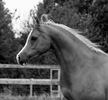 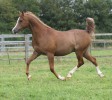 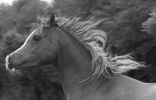 |
Report to Moderator  |
|
|
littlearabians
Gold Member
   
1323 Posts |
|
|
Montikka
Platinum Member
    

United Kingdom
2653 Posts |
 Posted - 30 May 2010 : 11:08:42 AM Posted - 30 May 2010 : 11:08:42 AM






|
| We don't anymore - but it is just the way we used to - and very well they did on it. |
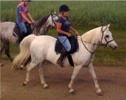 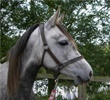  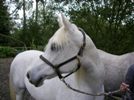
Louise, Warwickshire |
Report to Moderator  |
|
|
Dot
Gold Member
   
England
669 Posts |
 Posted - 30 May 2010 : 11:13:05 AM Posted - 30 May 2010 : 11:13:05 AM





|
Its a load of pseudo science rubbish.
Fact enzymes are not living never have been h=never will be. soaking for 2 hours will initiate the germination of the oat seeds. This will cause enzymes in the oats to metabolise starch and pectin in the seed and break it down into smaller molecules that are more readily digested in the horses stomach and intestines.
Some nutrients will be washed away in the liquid your eyes tell you this because the water is no longer clear. Beets me her definition of herb is a bit loose and could be applied to grass.
No feed is a complete balanced feed on its own due to there unique composition and the nutrient supply they were grown in.
The fact that this woman believes in iredology I think says more about her then I can put into words.
dot |
Dot
www.threelowsfarm.com
   |
Report to Moderator  |
|
|
Nedds71
Gold Member
   

Wales
679 Posts |
 Posted - 30 May 2010 : 11:45:23 AM Posted - 30 May 2010 : 11:45:23 AM






|
I have been feeding this diet, and using the herbal wormer for the last 12 months.
My horses are much healthier, more settled during winter months when bad weather forces them to be in more. There coats and there general look is much better. The herbal wormer actually does the job.
I've seen the benifits, and my youngstock are much stronger than on processed feeds. I use seaweed, brewers yeast, limestone and mineral salt licks to ensure mineral balance.
The other MASSIVE advantage is that my hard feed bill has dropped from £250 per month to £70!!!!!
Don't knock something till you try it - our horses are not designed to eat sugar or all the other crap that goes into processed feeds! |
BJ
www.bmjarabians.co.uk

 |
Report to Moderator  |
|
|
Vera
Membership Moderator
    

United Kingdom
8652 Posts |
 Posted - 30 May 2010 : 11:46:39 AM Posted - 30 May 2010 : 11:46:39 AM





|
100% agree with Dot. If you really want to know the composition and facts about feed then read Frape - Equine Nutrition and Feeding.
|
    
Hampshire |
Report to Moderator  |
|
|
Vera
Membership Moderator
    

United Kingdom
8652 Posts |
|
|
debs
Platinum Member
    
United Kingdom
3218 Posts |
 Posted - 30 May 2010 : 11:55:14 AM Posted - 30 May 2010 : 11:55:14 AM





|
| Dot...I do love reading your no nonsense posts! Will have a read of Frape.... |
    |
Report to Moderator  |
|
|
Nedds71
Gold Member
   

Wales
679 Posts |
|
|
Vera
Membership Moderator
    

United Kingdom
8652 Posts |
 Posted - 30 May 2010 : 11:58:49 AM Posted - 30 May 2010 : 11:58:49 AM





|
I might regret saying this but since being on this diet there is no sign of the mysterious severe itch he developed last year...
Edited to add that I'm not saying that he is on the soaked oat diet as described in the link posted. As I said before she is talking rubbish. What I mean is that since being on the diet I have him on he hasn't been itchy. |
    
Hampshire |
Edited by - Vera on 30 May 2010 12:16:16 PM |
Report to Moderator  |
|
|
Vera
Membership Moderator
    

United Kingdom
8652 Posts |
 Posted - 30 May 2010 : 12:15:04 PM Posted - 30 May 2010 : 12:15:04 PM





|
Rui - is it OK to post the article rather than the link? if not please remove.
Please note I am not advocating this diet, it is the article originally posted in the link above. I agree with some of what she said but a lot is questionable or factually incorrect.
Oat Diet
Having been asked by many people for a sensible way to feed their horses and having since been asked so many times for a copy of my oat diet I have decided to put it up for all to see, I stress that this is purely advice and not written in stone to be obeyed!!!
This is a diet I recommend for all horses but especially for horses that are not ‘doing well’ or ‘tying up’ or having ‘problems’ in the kidney area, showing dietary problems like spots or ‘sweet itch’ or just simply being ‘hyper’. It suits all horses and is much more cost effective as well as healthier.
Oats are classed as both a herb and a food, they are a strength-giving cereal, low in starch but high in minerals. Also rich in Vit. B they contain alkaloids, glycosides and fixed oils which are an important source of Vit. E. They are a nerve tonic and bone building and contrary to modern day thinking are the best possible feed for horses that are in work. The best way to feed them is soaked as explained here.
Soaked whole oats, soaked for approx. 12 hours in cold water, this makes the oats a living enzyme again, which enables the horse to digest them more easily. Because they are now a living enzyme and easier digested the energy is released into the system quicker and without any build up of lactic acid, so no tying up, and also they do not affect the temperament due to no starch build up in the hind gut. The other benefits of soaking include the fact that any chemical residue from sprays etc., are washed away, but not the goodness of the oat, also as Vit E is in the outer husk of the oat, after soaking it becomes easier to assimilate. The oats should be drained if possible overnight or for at least an hour before feeding, and enough can be put up to last a whole day. If they are put up for example first thing in the morning and then drained at evening stables they will be ready to feed next day. All you need is a hessian sack and a spare dustbin.
In light work I would suggest approx. 2lbs - 3lbs of oats twice a day with alfalfa (weigh soaked oats not dry) and of course good hay. The amount can then be increased gradually if and when the work increases. A horse in hard work, ie. eventing or racing should be able to eat 12 - 14lbs of soaked oats a day. The best supplement to feed is seaweed, one 15ml measure once a day, it is high in minerals and trace elements. It is rich in copper, iron, iodine, magnesium, phosphorous, silicon and sulphur. The iodine content, which is a supreme gland builder and conditioner, reduces excess fatty tissue and removes toxic elements, along with iron which is of premier importance to the blood, promoting oxygen absorption and building red corpuscles. Carrots are excellent for the liver and digestive system and full of calcium. Alfalfa is classed as a herb because it is very deep rooting, it is a rich source of calcium and also contains chlorine, magnesium, phosphorous, potassium, sodium and sulphur, it is also rich in vitamins. It is high in protein, but this is a natural source of protein, it is also a diuretic, and more importantly has 8 digestive enzymes in it which stimulate the digestive system, enabling the proper assimilation of the nutrients provided. It is a very good ‘balancer’ to be fed with oats, although it is a complete feed in its own right. Try and find an Alfalfa chaff that does not contain any molasses, when a chaff contains molasses there has to be a mould inhibitor, i.e. propionic acid, unfortunately propionic acid can cause stomach ulcers, so try and find a chaff with No additives. If you are looking to feed a diet based on roughage, I suggest you look at Fibre feeds, they have complete range of feeds with no added molasses or propionic acid, they are on the links page.
A bran mash once or twice a week with a small handful of Epsom salts, to keep their system clean, this has become unfashionable due to modern day nutritionists, however it is as good for horses nowadays as it was in the past.
Other feeds that can be added, sugar beat, preferably un-molassed helps keep condition on, it is also good for keeping the bowels working, and is very good for lactating mares. it is also high in calcium.
Cider Vinegar internally, is good for them an egg cupful daily, this is also excellent used externally for any sore or inflamed joints. Corn oil is also a good additive, again an egg cupful a day mixed into the feed.
Salt should also be available, and the best source is Rock Salt, not the man made licks but the rock salt that is pure and dug out of the ground and many feed merchants do sell it. It comes in large chunks, which can be broken down to put in the stable or one large chunk in the field for horses grazing.
For those horses that need to put on weight or hold condition boiled barley, boiled linseed and flaked maize are all good ‘fattening’ foods. Boiled barley can be given once a day in the evening feed, ¼ of a scoop of boiled barley per horse, whereas linseed is better only given 2 -3 times a week as it can overload the liver.
And finally but very important good quality hay, if you have to feed horsehage or haylege for some reason then make sure it is low protein and not too wet and acidic as the acid content can contribute to ulcers, also the fact that if it is very high protein it can’t be fed in large quantities, therefore the stomach has long periods of being empty, and because the horse is a browser, continually grazing, only stopping for short periods to sleep, this causes an acid build up which again causes stomach ulcers, this is why it is helpful to sometimes feed extra chaff or good clean oat straw as non fattening forage bulk.
I realise that this diet is ‘old fashioned’ and that the modern day diets are far easier, however that does not mean they are better and although modern day nutritionists say that the old diets were bad for horses, it was all that horses were fed in the past, and the horses were far fitter, healthier, less colics, ulcers, hardly any sweet itch, fewer cases of tying -up, fewer cases of fractures and bursting, far less cases of laminitis, I think the evidence speaks for itself, and I am confident that you will be delighted with the results, and the reduction in your feed bills.
|
    
Hampshire |
Report to Moderator  |
|
|
BabsR
Platinum Member
    

England
2790 Posts |
 Posted - 30 May 2010 : 12:30:05 PM Posted - 30 May 2010 : 12:30:05 PM





|
We are believers in scientifically balanced feeds which are manufactured to meet the specific requirement of the Horses particular needs...ie racehorse, eventers, youngstock, broodmares etc etc
Our stud stallion, mares, foals and youngstock are fed Stud cubes or Horse and Pony cubes and sugar beet, along with good quality hay. No other additive or supplement, just a mineral rocksalt in their mangers
Methinks the problems occur when the `Feeder` starts adding all and sundry supplements, which can then cause a detrimental imbalance to the processed feed which has been scientifically formulated to meet all the needs of the horse, whatever its working life.
Each to their own preference but the fact our horses are very well and healthy....with rarely a Vet visit, even when well into their twenties, is sufficient evidence for us
Horses are living and working much longer than they were a few decades ago, so indicating an improvement in equine nutrition
Babs
www.SunrayAngloArabianStud.co.uk
|
        |
Report to Moderator  |
|
|
Vera
Membership Moderator
    

United Kingdom
8652 Posts |
 Posted - 30 May 2010 : 12:38:08 PM Posted - 30 May 2010 : 12:38:08 PM





|
I agree with you too Babs, my other horses are fed a 'commercial' feed. The only thing I add to their diet is unpasturised Apple Cider Vinigar.
But in the instance of where you horse has a problem - in Dennis's case a mysterious itch and proof that he has intolerances to certain foods, this diet is really worth considering. |
    
Hampshire |
Report to Moderator  |
|
|
MinHe
Platinum Member
    
England
2927 Posts |
 Posted - 30 May 2010 : 10:27:51 PM Posted - 30 May 2010 : 10:27:51 PM





|
One point the article fails to make is that horses in the past worked a damn sight harder than they do today, which is *why* they were fitter!
Having been fallen on by a horse that was 'oated up', I must admit to feeling somewhat leery of this diet!
Keren |
Report to Moderator  |
|
|
Anne C
Gold Member
   

United Kingdom
886 Posts |
 Posted - 30 May 2010 : 10:39:37 PM Posted - 30 May 2010 : 10:39:37 PM





|
Dennis is 'special' in't Vera? Just like Eldor, ordinary feed just wont do lol
|
Anne |
Report to Moderator  |
|
|
Vera
Membership Moderator
    

United Kingdom
8652 Posts |
 Posted - 30 May 2010 : 10:45:03 PM Posted - 30 May 2010 : 10:45:03 PM





|
LOL 'special' or high maintenance!! But we love them don't we  |
    
Hampshire |
Report to Moderator  |
|
|
Anne C
Gold Member
   

United Kingdom
886 Posts |
 Posted - 30 May 2010 : 10:51:49 PM Posted - 30 May 2010 : 10:51:49 PM





|
We must do or we wouldn't be able to cope with their 'specialness'!! Boys!!
|
Anne |
Report to Moderator  |
|
|
Nedds71
Gold Member
   

Wales
679 Posts |
 Posted - 31 May 2010 : 07:16:27 AM Posted - 31 May 2010 : 07:16:27 AM






|
Keren,
If you read the diet through you will realise that the horses DON'T get oated up, by soaking the oak you remove the startch. Its the startch collecting in the hind gut of the horse that can make them loopy loo!
Anything with sweat itch or skin problems show huge improvement on this diet. I have a mare that I've had for 14 years always suffered with sweat itch having been on the oat diet for 12 months this summer she is alot better in her skin, and where she has rubbed the healing is much quicker.  |
BJ
www.bmjarabians.co.uk

 |
Report to Moderator  |
|
|
Dot
Gold Member
   
England
669 Posts |
 Posted - 31 May 2010 : 08:57:33 AM Posted - 31 May 2010 : 08:57:33 AM





|
There is nothing natural about feeding cooked feeds to animals that evolved to eat raw food. All cooking does is predigest indigestible carbohydrates in the food source increasing the calorific value of the feed.
Dot |
Dot
www.threelowsfarm.com
   |
Report to Moderator  |
|
|
jackiedo
Gold Member
   
England
1370 Posts |
 Posted - 31 May 2010 : 09:26:05 AM Posted - 31 May 2010 : 09:26:05 AM





|
I feed straights. Started this last winter with a rescued TB in poor condition on the advice of a nutritionist, complicated as the horse was so severely claustrophobic it would not be stabled. The mare lived out all winter (with another TB and Aged Arab mare) up to christmas without rugs too.
they got soaked oats, sugarbeet and alfalfa twice a day, with AD lib hay and extra biotin (as the mare had very poor feet) OK they did no work, but they had lots of energy and came out of winter in fabulous body condition with good coat and hooves. I have to add that my aged TB had a throat tumour and the rescue one had an underlying problem that had been seriously neglected in her last home that necessitated them being PTS on vet advice, but condition wise they did very well |
Report to Moderator  |
|
|
Zan
Platinum Member
    

Scotland
3213 Posts |
 Posted - 31 May 2010 : 09:41:52 AM Posted - 31 May 2010 : 09:41:52 AM






|
Hmmm---horses did used to appear be fitter but they weren't clinically obese as most horses are these days, which is not down to modern compound feeds, but due to the fact that owners overfeed them the wrong kind of feed and do not exercise them enough. Obesity leads to all sorts of problems in horses from the obvious ones, like laminitis and joint problems, to less obvious, such as skin problems.Keep your horses slim and they will live longer, healthier, happier lives.
I agree with Dot that there is nothing at all "natural" about this diet--where would soaked oats and cooked barley and linseed feature in the life of a wild horse? The "natural" way to feed horses is fibre, fibre and more fibre. There are plenty of well balanced, nutrionally sound feeds based on fibre these days.
I would also point out that, in the "good old days", horses were considered very old in their mid teens, and it was very unusual for their working life to go on beyond that. They also tended to be killed rather than retired when their working lives were over ( big generalisation I know---some people probably kept their old friends but it wasn't usual), so not many ever had a chance to show old age related illnesses. |
 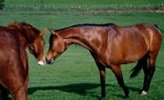 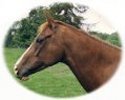  |
Report to Moderator  |
|
|
littlearabians
Gold Member
   
1323 Posts |
 Posted - 31 May 2010 : 11:24:54 AM Posted - 31 May 2010 : 11:24:54 AM






|
I'm having problems with my mare on commercial feeds for the first timer ever...
she is loosing some of her coat, and vet has done all sorts of tests... at the moment her vitamin A levels are too high, and she is lacking essential fatty acids.
I really don't know what to feed her anymore, you buy ready mixed stud mix as it's supposed to be the best, and then you end up with problems like this.
last time i had problems regarding feed was also a commercial mix... spillers cool mix... my old TB got very very poorly, and blood samples reveled that the vitamin levels was completely wrong, in spite the fact that I was feeding what the spillers feed consultant recommended me.
I'm thinking if this oat diet might be the thing for me... |
www.littlearabians.com
Classic Polish Arabians
Worcester based
|
Report to Moderator  |
|
|
BabsR
Platinum Member
    

England
2790 Posts |
 Posted - 31 May 2010 : 12:21:48 PM Posted - 31 May 2010 : 12:21:48 PM





|
Old horses, require a higher level of nutrition to maintain their condition. I would not be feeding a cool mix to veteran Thoroughbreds.
Our old ladies are fed Stud Nuts and Sugar Beet. Stud Nuts are higher in protein and oil and not as high in Vit A as Cool Mix. Our TB mare bred her last foal aged 24years and her condition was such that she could have gone in the showring that year. In fact all our oldies, in excess of 20years live out 24/7 and all look fit and well with good coats.

Little-Maureen aged 24yrs with her newborn Anglo Colt
We recommend stud nuts for all real oldies, with the exception of laminitics based on our own experience over the many years we have been breeding our Anglos
www.SunrayAngloArabianStud.co.uk
|
        |
Report to Moderator  |
|
|
mittens
Platinum Member
    

United Kingdom
2109 Posts |
 Posted - 31 May 2010 : 12:25:11 PM Posted - 31 May 2010 : 12:25:11 PM






|
Hmmm, interesting replies!
Firstly making a judgement on a person because they practice iridology seems a bit harsh. I have read a bit about the subject and have seen from experiments that it can lead otherwise healthy people to think they have a life-threatening disease whilst on the flip-side not noticing conditions in people who already had serious illness.But anyway,back to the oats.  I am tempted to try the diet but on the other hand slighly concerned that even soaked oats could be a problem for older horses with not so good teeth to grind up. Also with regards to oats causing fizziness I've found barley to have more of a rocket-fuel effect in the past. Alfalfa also has received some bad press but I can't remember the exact reasons for this so I won't try to waffle on about it! I am tempted to try the diet but on the other hand slighly concerned that even soaked oats could be a problem for older horses with not so good teeth to grind up. Also with regards to oats causing fizziness I've found barley to have more of a rocket-fuel effect in the past. Alfalfa also has received some bad press but I can't remember the exact reasons for this so I won't try to waffle on about it!
I don't recall the article saying oats could be fed on their own as a total feed and she does say which suppliments would compliment the diet.I agree totally that the ready blended feeds should contain all the vits and minerals required and that adding another thing to the mix would be overloading and although I've been told that horses will "pee out what they don't need" I'm not sure if it's as simple as that.
As with us,we should get all our nutritional requiremnets from the food itself IF we eat the right things,therefore eliminating the need to take vitamin tablets,but lets face it,who realistically has the time to work out the contents of everything we shove down our throats let alone being able to afford 5-a-day of the best fruit and veg available,so for us a multi vitamin is a way of getting what we lack.
Still baffled by live enzymes though!  |
Avatar
My Contact Info
nrisby@btinternet.com |
Report to Moderator  |
|
|
littlearabians
Gold Member
   
1323 Posts |
 Posted - 31 May 2010 : 12:46:15 PM Posted - 31 May 2010 : 12:46:15 PM






|
BabsR:
old = flat horse re schooled for showjumping and endurance age at the time 11 years old.
also the A vitamin problem is not him, but my Arab mare who is fed stud mix, not cool mix. |
www.littlearabians.com
Classic Polish Arabians
Worcester based
|
Report to Moderator  |
|
 Topic Topic  |
|

